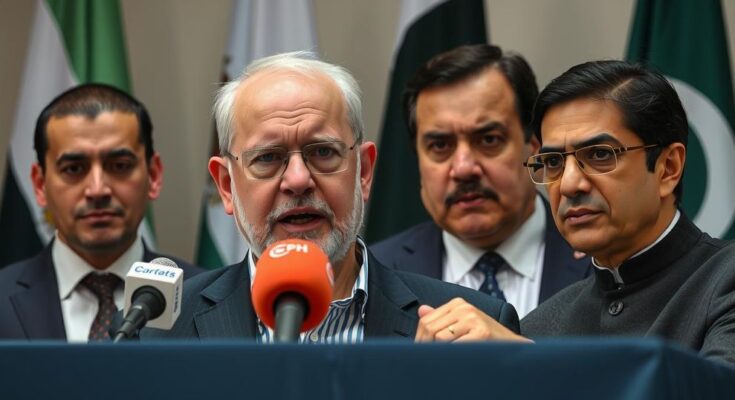The article compares Argentina’s recent economic recovery under Javier Milei with Pakistan’s ongoing struggles, advocating for similar reformative leadership. While Milei’s policies led to significant inflation reduction and governance improvements, his controversial biases and flawed historical perspectives raise concerns. The narrative emphasizes the necessity for Pakistan to seek a leader capable of driving change without the encumbrances of such biases.
Argentina and Pakistan bear striking resemblances in their economic trajectories, having both experienced severe turmoil despite once flourishing economically. Argentina’s political landscape was famously transformed by Javier Milei, whose presidency inaugurated significant economic recovery, notably by drastically reducing inflation from 211 percent in December 2023 to single digits. His policies have gained global attention, inspiring some in Pakistan who seek a similar reformative figure to address the nation’s ongoing economic struggles.
During a revealing podcast with Lex Friedman, Milei elaborated on his approach that led to Argentina’s turnaround. He emphasized the importance of slashing bureaucratic inefficiencies and eliminating fiscal deficits, which ultimately brought inflation under control and aimed to improve purchasing power among citizens. His insights extend to recognizing the detrimental effects of taxpayer-funded contracts and acknowledging the role of independent media in fostering transparency against corruption—a sentiment that resonates similarly in Pakistan.
However, Milei presents a complex persona, occasionally revealing controversial views that prompt concern. His characterization of the U.S. and Israel as model democracies indicates a troubling bias towards the Palestinian situation, raising questions about his commitment to freedom while professing a readiness to die for that very cause. Additionally, his retrospective economic claims display a flawed understanding of history, particularly regarding the Industrial Revolution’s impact on societal well-being, which diverges sharply from historical realities faced by laborers during that era.
When addressing economic doctrines, Milei’s interpretations of key figures such as Milton Friedman and Adam Smith reflect misconceptions of their philosophies, particularly in their views on capitalism and class structure. Furthermore, his enthusiasm for the Gold Standard notwithstanding its historical implications challenges the credibility of his economic assertions.
While there is merit in advocating for a Milei-esque figure in Pakistan, particularly one unafraid to dismantle stifling regulations, it is essential that such a leader possesses a nuanced understanding of economic complexities. Pakistan requires robust leadership but must avoid the biases and misunderstandings apparent in Milei’s rhetoric. A leader adept in economic intricacies, unclouded by skewed historical perspectives, could strike a true balance beneficial for the nation.
The article juxtaposes the economic journeys of Argentina and Pakistan, focusing on Javier Milei’s presidency in Argentina and the potential need for a similar figure in Pakistan. The discussion acknowledges Argentina’s recovery from severe inflation under Milei and addresses the systemic issues faced in both countries. It highlights Milei’s economic policies while also critiquing his controversial views and misinterpretations of historical economic theories. This context helps underscore the complex requirements of effective leadership in addressing economic challenges.
The analysis presents a dual narrative regarding Javier Milei’s influence on Argentina’s economy and the potential for similar economic reform in Pakistan. While Milei’s initiatives have effectively curbed inflation and restructured bureaucratic policies, his biases and misunderstandings of crucial economic history present significant concerns. For Pakistan, the need for a leader with bold reformative capabilities is evident, yet such a figure must possess a comprehensive and impartial understanding of economic dynamics to truly effect positive change.
Original Source: www.dawn.com




